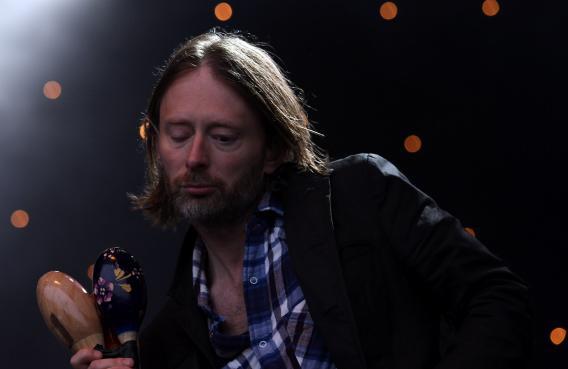Pitchfork, the online bible of indie rock fans, has just published “The People’s List,” the results of a poll in which the magazine asked its readers to name their favorite albums of the years 1996-2011. (Pitchfork celebrated its 15th anniversary last year.) For music geeks, list-making is an irresistible exercise, and the interface that Pitchfork built made this one especially fun:You could watch your list fill up with album-cover thumbnails, click-and-drag to reorder your choices, etc. (Here is my own hastily compiled tally.)
All told, 27,981 people voted in the poll, and Pitchfork published the top 200 albums. The results are… very Pitchforkian. “The People’s List” was topped by Radiohead’s OK Computer. Radiohead’s Kid A was the runner-up; Radiohead’s In Rainbows ranked sixth. (Two other Radiohead albums made the cut as well.) There’s lots of Arcade Fire and Animal Collective and White Stripes and Wilco. Bon Iver shambled and mewled his way to high finishes, placing both of his albums in the Top 30.
In short, nothing about the list is surprising, and for those of us who love pop music in its many flavors and permutations—including pop music that is actually popular—the usual complaints apply. Aesthetically, generically, regionally, racially, “The People’s List” is narrow and conservative. Pitchfork’s readers ignored virtually every musical genre other than indie rock and its folk- and electronic-offshoots. The Top 40 scarcely registers a blip in this world. Hip-hop—and for that matter, Afro-America—is represented mainly by Kanye West. (Kanye contains multitudes, but c’mon.) Country music doesn’t exist. Metal doesn’t exist. Reggaeton, bachata, salsa? ¿Cómo? The world outside the United States—it’s barely there. The United States, Canada, and the U.K. account for 174 of the 200 albums; the only non-Anglophone nations are France and Sweden.
All of this is to be expected. Had Pitchfork asked readers to list their favorite singles of the past 15 years, the results may have had a slightly higher pop/hip-hop/dance quotient. An album poll will inevitably skew towards artsy-fartsy rocker types. And of course, Pitchfork’s readership is a self-selecting group of indie-centric listeners in the first place—Pitchfork is as much a niche publication as XXL, or Cat Fancy. The fact that Pitchfork is regarded in certain influential circles as something other than a niche publication—the fact that indie rock gets coverage in the high-middlebrow press way out of proportion to its popularity and cultural impact—says more about the tastes and prejudices of the pundit class than it does about Pitchfork, per se. In fact, Pitchfork’s editors have considerably broadened the scope of the magazine’s coverage in recent years, squeezing in more pop stars and rappers alongside the shaggy artistes.
Still, “The People’s List” poll is a scandal. Even if we accept the inevitable narrowness of such an undertaking—even if we concede that, in a poll of indie-rock devotees, 24 albums by black people out of 200 is a pretty solid showing—even on its own parallel-universe Pitchforkian terms, the results are an embarrassment.
I’m referring to the list’s gender breakdown. If I’m not mistaken, there are just 23 records by women artists in the top 200, and only two in the top 50. And that’s a generous count, making room for co-ed acts like The xx, Beach House, and Portishead. Again, we can look to the self-selecting voting base. According to Pitchfork’s own stats, 88% of the poll respondents were men. “The Dudes’ List” might have been a more accurate title.
Still—what the hell is wrong with these dudes? Did it escape their attention that for much of the past decade and a half, female artists have had a stranglehold on the popular music zeitgeist? Have they never heard of Missy Elliott? Can they really prefer The National to M.I.A.’s Kala, to Bjork’s Homogenic, to Joanna Newsom’s Ys? Where are politics in all of this? If you surveyed the roughly 24,600 men who submitted “People’s List” ballots, I wager you’d find nearly 100 percent espousing progressive views on gender issues. This would not be the case if you took a similar survey of pop, R&B, or country music fans—yet a “People’s List” of top recordings in those genres from 1996-2011 with a similar gender breakdown is unimaginable. The fact is, when it comes to the question of women and, um, art, the Top 40’s great unwashed—and even red state Tea Party partisans—are far more progressive and inclusive than the mountain-man-bearded, Fair Trade espresso-swilling, self-styled lefties of indiedom. Portlandia, we have a problem.
